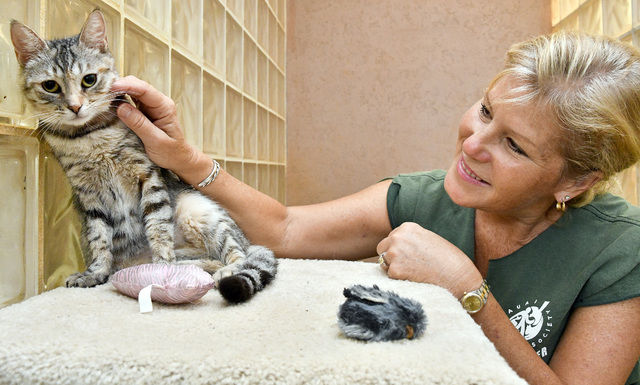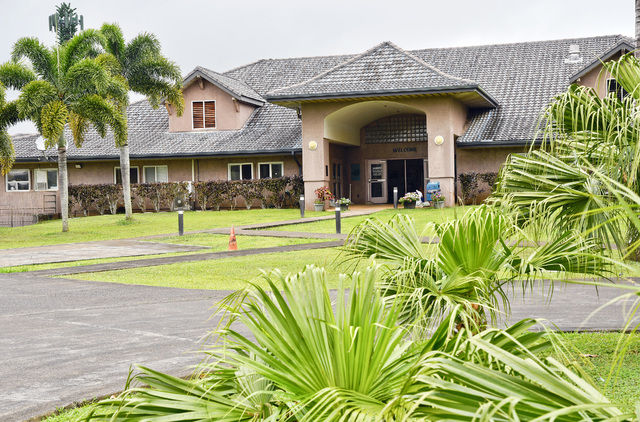LIHUE — County officials hope an audit of the Kauai Humane Society, paired with new leadership, will help steer the organization in a positive direction. “Usually when you hear the word ‘audit,’ you think ‘oh no,’ but I think for
LIHUE — County officials hope an audit of the Kauai Humane Society, paired with new leadership, will help steer the organization in a positive direction.
“Usually when you hear the word ‘audit,’ you think ‘oh no,’ but I think for the most part, an audit really does show you areas of weakness and how to improve it,” said Councilman Arryl Kaneshiro. “Right now, it’s kind of divisive but going forward, it can be something everyone is proud of.”
It’s a sentiment Councilman Mason Chock echoes.
“It’s good timing, with renewed energy. I like his approach, and I hope we can use the audit as a tool to problem solve rather than to separate and divide,” he said.
Scott Pisani, who took over as executive director of the Kauai Humane Society in October, appeared before the Kauai County Council during a committee meeting Wednesday to address an audit of the organization.
He said he believes the audit highlights good opportunities for improvement in the services KHS provides to the county and residents.
“We, the employees and volunteers of the Kauai Humane Society, are committed to improving the services we provide to our community, from customer service to animal wellness and rehabilitation, from spay/neuter to adoptions,” he said.
The audit, which was requested by Mel Rapozo, council chair, looked at KHS from July 1, 2012 to June 30, 2015.
Rapozo said he requested the audit after KHS continually asked the council to increase its budget.
On Wednesday, the auditors, Tyler Kimura and Matthew Kagawa, who represent the firm, Spire Hawaii LLP, presented six findings with recommendations like more accurate reporting, a more clearly defined role for the county, and an update to euthanasia rules.
Inaccurate record keeping was the source of several problems highlighted by the audit. In many cases, auditors found their access to records limited, or the records weren’t there.
“The scope of our audit was to delegate the scope of KHS’s contract with the county. We were tasked to identify deficiencies and ensure county funds were being used for county services and recommend changes,” Kimura said. “We interviewed personnel and conducted walk throughs. We performed detailed testing on euthanasia practices, financial reporting, journal entry reporting and field service activity.”
From each of the three fiscal years, the audit sampled 45 animals. Of that total, 10 from each year were euthanized before the 48-hour holding period, Kimura said.
Additionally, the same person who approved euthanizing the animals was also responsible for euthanizing the animals, Matthew Kagawa said.
“During our testing, 25 of the animals euthanized were approved and performed by the same person,” he said.
Another issue the audit brought forward was ambiguous wording in KHS’s contract with the county, which could lead to misinterpretations, Matthew Kagawa said.
Because of that, the contract should be updated, he said.
On Wednesday, Ken Shimonishi, director of finance, said he is in discussion with the County Attorney’s office to update the contract.
“The laws have not kept up with issues with animals we’re seeing on the island,” he said.
He hopes to have a new contract drafted by July 1.
The base contract between the county and KHS is $780,000 per year, Shimonishi said.
KHS also receives dog and cat licenses fees collected on behalf of the county and is reimbursed up to $6,000 a year for expenses incurred relative to any animal cruelty cases, he said.
During the meeting, representatives from other animal welfare groups like the Kauai Community Cat Project, Kauai SPCA and individual foster care organizations said they would be willing to take in animals if the humane society cannot take them.
“Euthanizing any viable animals that is viable for adoption is wrong practice,” said Scott Haley, who runs a cat rescue. “There’s a lot of us here who are willing to take care of kittens.”
Basil Scott, of the Kauai Community Cat Project, suggested a longer hold time for animals picked up on the road.
“Maybe extend it three or four days,” he said. “Some people aren’t even sure their cat is missing at two days.”
Councilman Arthur Brun said he hopes Pisani will work with these groups toward a common goal.
”If not, everyone is going to be working on their own goals, and that’s not going to help the animals,” he said.
Since October, 150 animals were either adopted or transferred to the Mainland, Pisani said.



